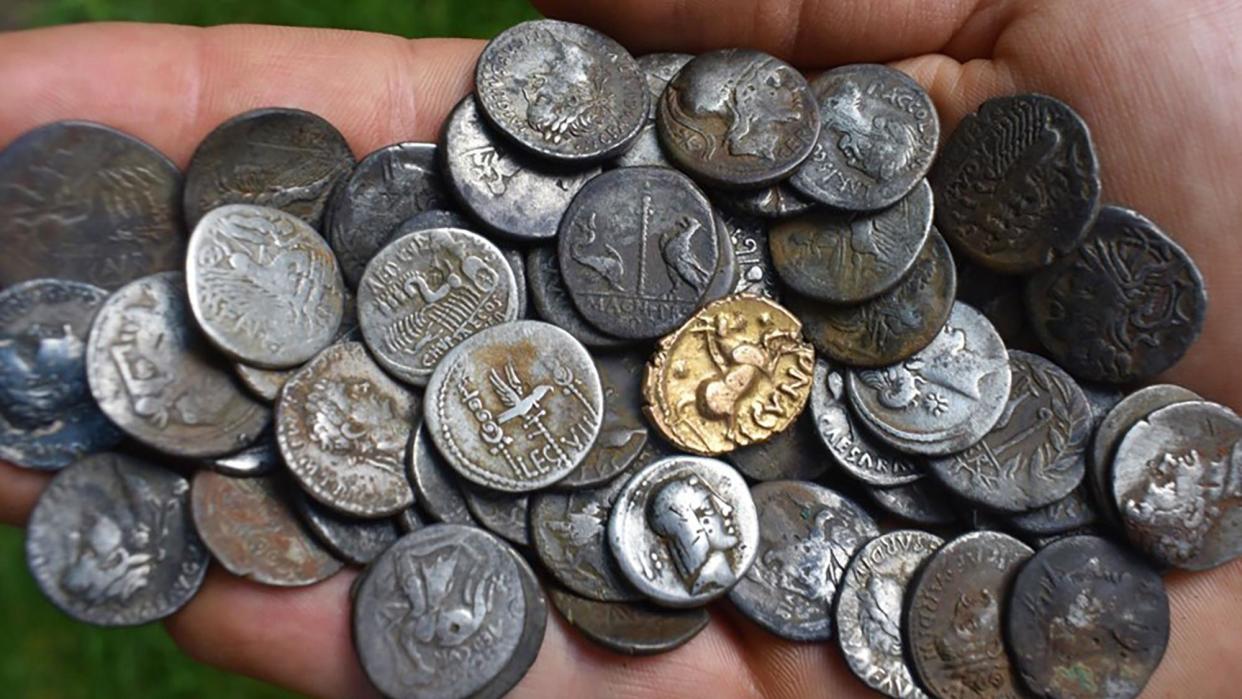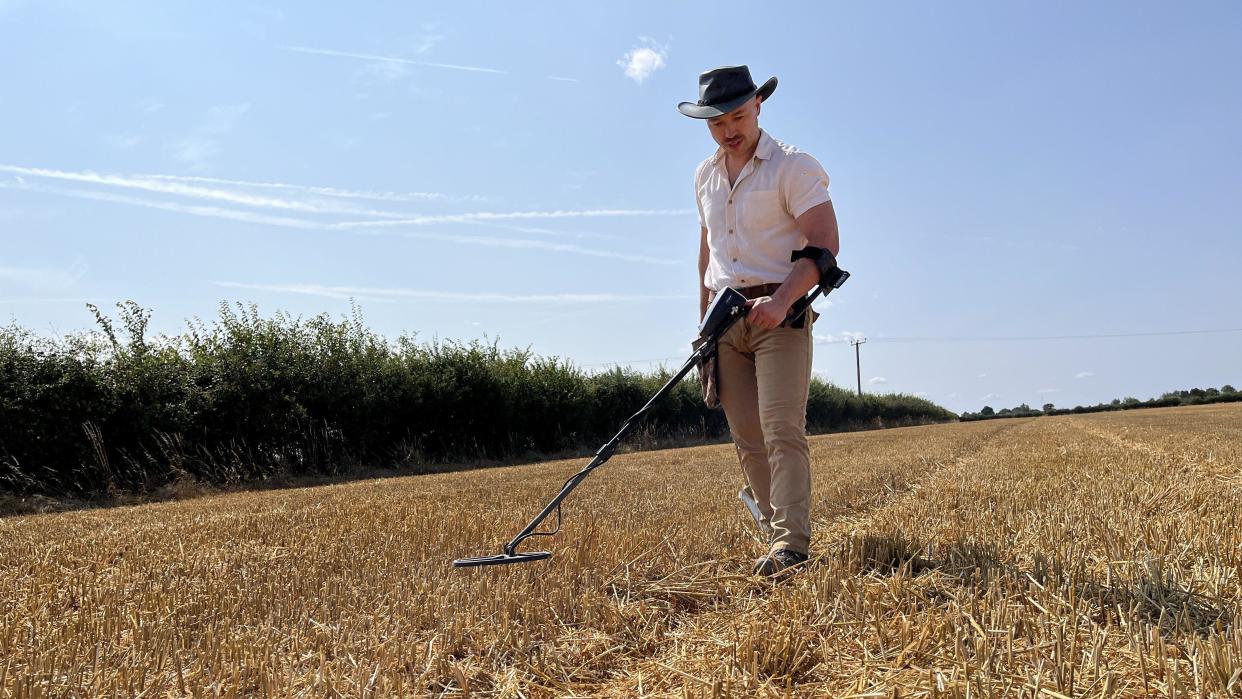Haul of historic coins fetches £132k at auction

A hoard of hundreds of historic coins found by a metal detectorist - one of the largest hauls of its kind - has sold for £132,865 at auction.
The 680 gold and silver coins were found by George Ridgway at Helmingham Hall, Suffolk, and date from as early as 206 BC through to 46 or 47 AD, when Claudius ruled over the Roman Empire.
The proceeds from the sale will be split between the landowner and Mr Ridgway, a trained archaeologist from Ashbocking, near Ipswich, who said Indiana Jones was his childhood hero.
Alice Cullen, a coin specialist at auctioneers Noonans Mayfair, said she was "very pleased" with the result of Wednesday's sale, which had only been estimated to fetch £75,000.
She said: "This is one of the largest hoards containing both Iron Age coins and Roman coins found in Britain, with the latest coins of Claudius and those of Cunobelin in virtually 'as struck' condition.

"The location of the hoard, together with the date range, suggests the coins may have been buried by a long serving Legionary soldier from the XX Legion, who were stationed at nearby Colchester.
"In 47 AD the East Anglian Iceni tribe rebelled after the Roman governor Ostorius ordered them to disarm, resulting in a fierce battle that was likely held at Stonea Camp in Cambridgeshire, which the Romans won."
Mr Ridgway, 34, previously said the discovery - made in September 2019 - was "an awe-inspiring moment".
The British Museum, as well as Colchester and Ipswich Museums, claimed a total of 63 of the 748 coins for their own collections.
The highest price of the sale was for a Denarius of Gaius Caesar, better known as Caligula, dating from AD 37-38 and decorated with a portrait of Agrippina, which sold for £7,000 against an estimate of £2,000-£2,600.
A Denarius of Claudius, dating from AD 41-42, sold at the hammer for £5,000, despite an estimate of £1,500-£1,800.
Follow Suffolk news on BBC Sounds, Facebook, Instagram and X.






